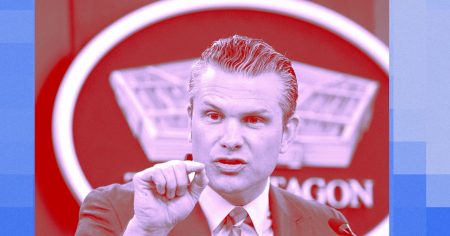Nishith Rastogi is a Founder & CEO of Locus, a leading-edge technology company helping 300+ global enterprises gain excellence in logistics.
In today’s fast-paced business environment, effective logistics are vital for financial success. Real-time decisions and punctual deliveries are more than services; they’re foundational for customer loyalty and superior experiences. Yet, consumers demand swift, convenient and affordable deliveries. On the other end, last-mile delivery—the final step in the supply chain—is expensive and time-intensive. As customer expectations rise, the associated costs to meet these expectations skyrocket. This begs the question: How can businesses maintain profits without overspending on customer acquisition? The answer lies in unit economics, a lens that evaluates the profitability of each delivery or route. While this article discusses logistics, the concepts extend to the entire supply chain.
As the saying goes, you cannot improve what you cannot measure. This is why evaluating a company’s financial health requires analysis at the unit level. Key metrics for unit economics offer insight into revenue, cost and profitability, which are crucial for identifying improvement areas, tracking progress and making informed decisions. Some important metrics include:
Customer Acquisition Cost (CAC)
CAC is all of the expenses a corporation shoulders to woo, captivate and integrate new clientele into its system. Being cognizant of CAC is pivotal when assessing the scope of realistic profit making within an enterprise’s client base. Lower CAC underscores a company’s aptitude to attract and retain clients in a fiscally prudent manner and healthy business growth.
Lifetime Value (LTV)
LTV is a valuable gauge for anticipating the net fiscal gain a corporation stands to reap from a single client throughout the entire chapter of their affiliation. LTV sheds light on a corporation’s knack for holding on to and earning revenue from its clients in the long haul. An elevated LTV implies the businesses competence in persevering and capitalization on its clientele over extended periods.
Operational Expense Ratio (OER)
This ratio mirrors the relationship between a company’s operational expenses and its total revenue. It is derived from the division’s operational outlays by total earnings. The OER serves as a handy tool to pinpoint areas within an enterprise ripe for augmentation to enhance profitability. A reduced OER denotes a company’s prowess in the adept handling of its operational expenses, thus fostering financial success.
Delivery Costs
Delivery expenses are a cardinal fragment of a company’s per-unit economic structure. They constitute the diverse costs involved in ensuring a product reaches its rightful customers, encapsulating expenses like order facilitation, fuel, transportation personnel, warehousing costs, restocking fees, return freight charges, as well as labor costs related to customer services and product selection and packaging.
Now that we know the factors that impact unit economics, we can now look at optimizing our key operations to further improve our unit economics for a better bottom line.
Ensuring Robust Routing
Robust routing is crucial in the supply chain. Experienced professionals, familiar with the fine aspects of a locality and how drivers operate, are trusted to design routes. When demand surges or operations scale up, partnering with reputable carriers ensures timely deliveries and optimal customer experience. When challenges like human error and biases limit this method’s effectiveness, businesses can consider looking to automating route planning, offering real-time, intelligent routing that considers variables such as traffic and road closures, ensuring SLAs are met while also saving costs.
Optimizing package sorting is also critical. Traditional manual sorting at warehouses is time-consuming and costly. Establishing multiple fulfillment centers near key order locations can expedite delivery and cut costs. However, the initial capital expenditure and the need for supply chain network design expertise are concerns. Another solution that bypasses automated sorting solutions can reduce sorting time and costs, improving delivery efficiency and profitability.
Advanced analytics can yield valuable insights into costs, last-mile deliveries and other essential metrics. When choosing an analytics solution, ensure it:
• Provides insights considering real-world operational metrics.
• Collects on-ground data for enhancing future deliveries.
• Offers an intuitive user experience, considering different stakeholder requirements and their comfort with using new technology solutions.
Some things to consider is the ease of navigation, the ease of creating customized reports and dashboard as per the need of different roles.
The Bottom Line
A study suggests that global e-commerce sales might grow by 56%, reaching $8.1 trillion by 2026. However, the challenges of price wars and diminishing margins make profitability elusive. Focusing on unit economics can guide decision-making, set benchmarks and define industry standards. Understanding the factors determining a company’s unit economics helps businesses strategize long-term and use existing resources effectively for meaningful growth.
Forbes Business Council is the foremost growth and networking organization for business owners and leaders. Do I qualify?
Read the full article here










